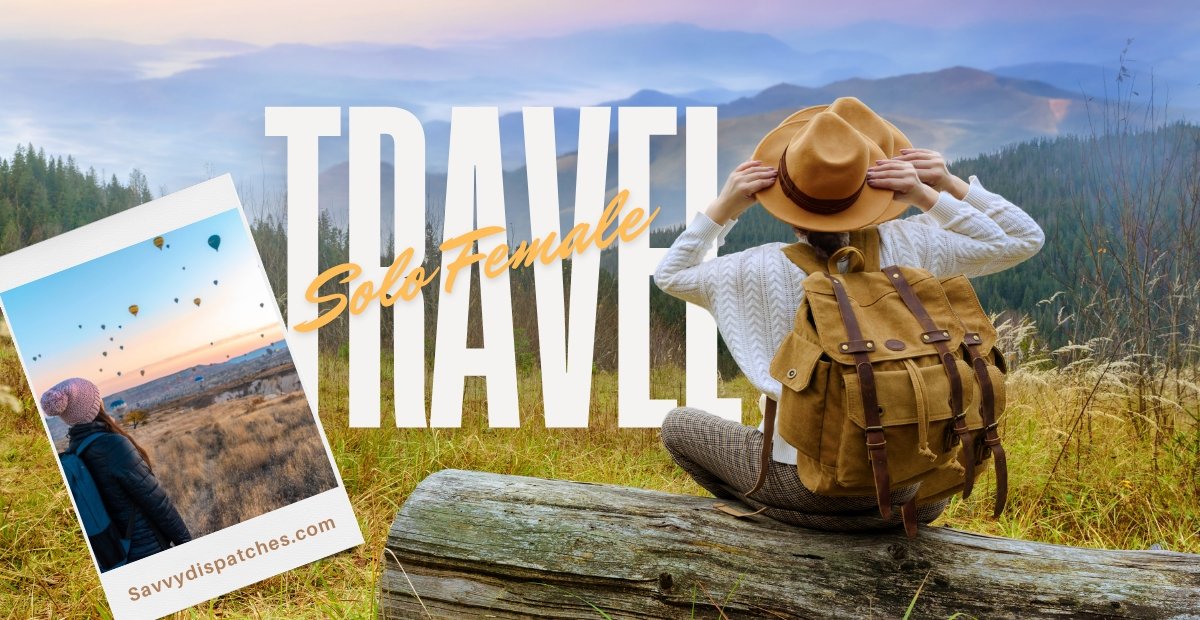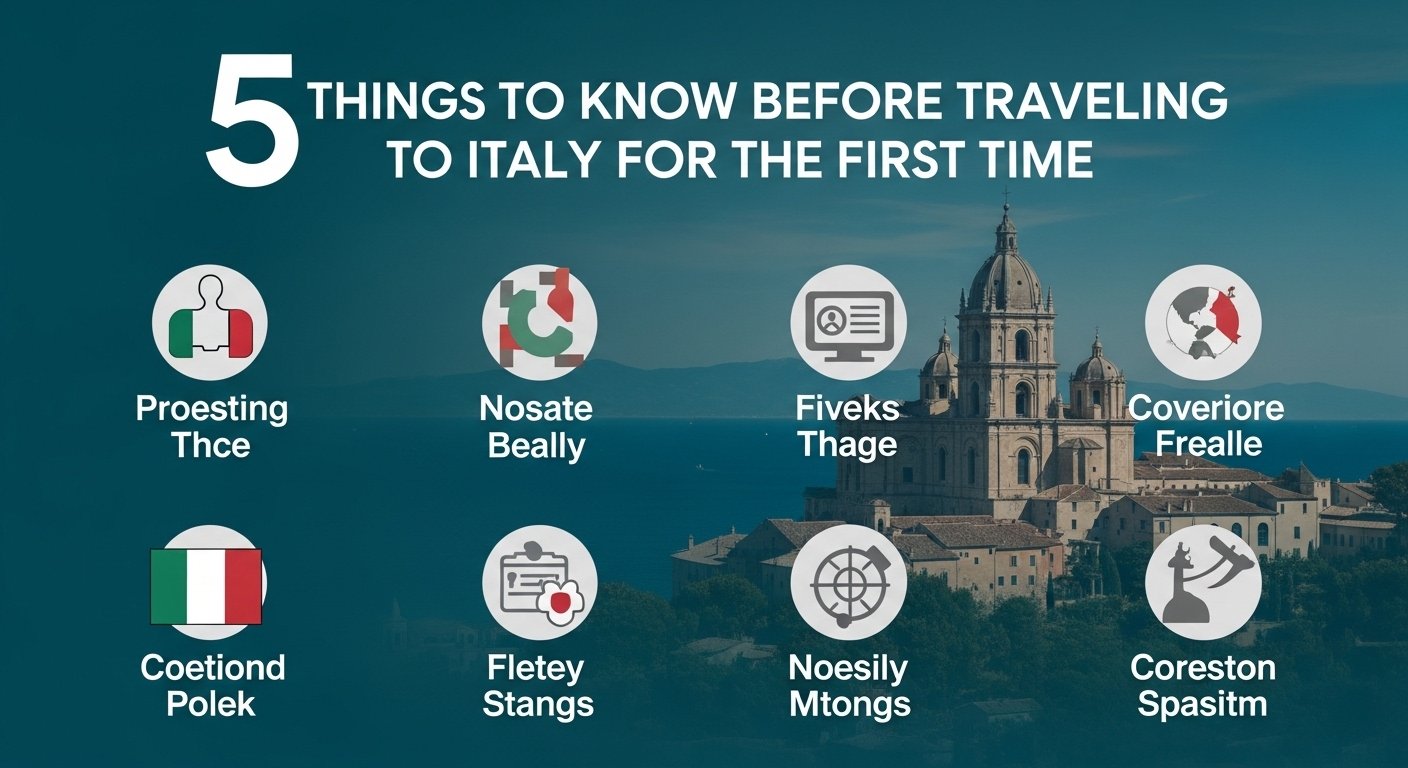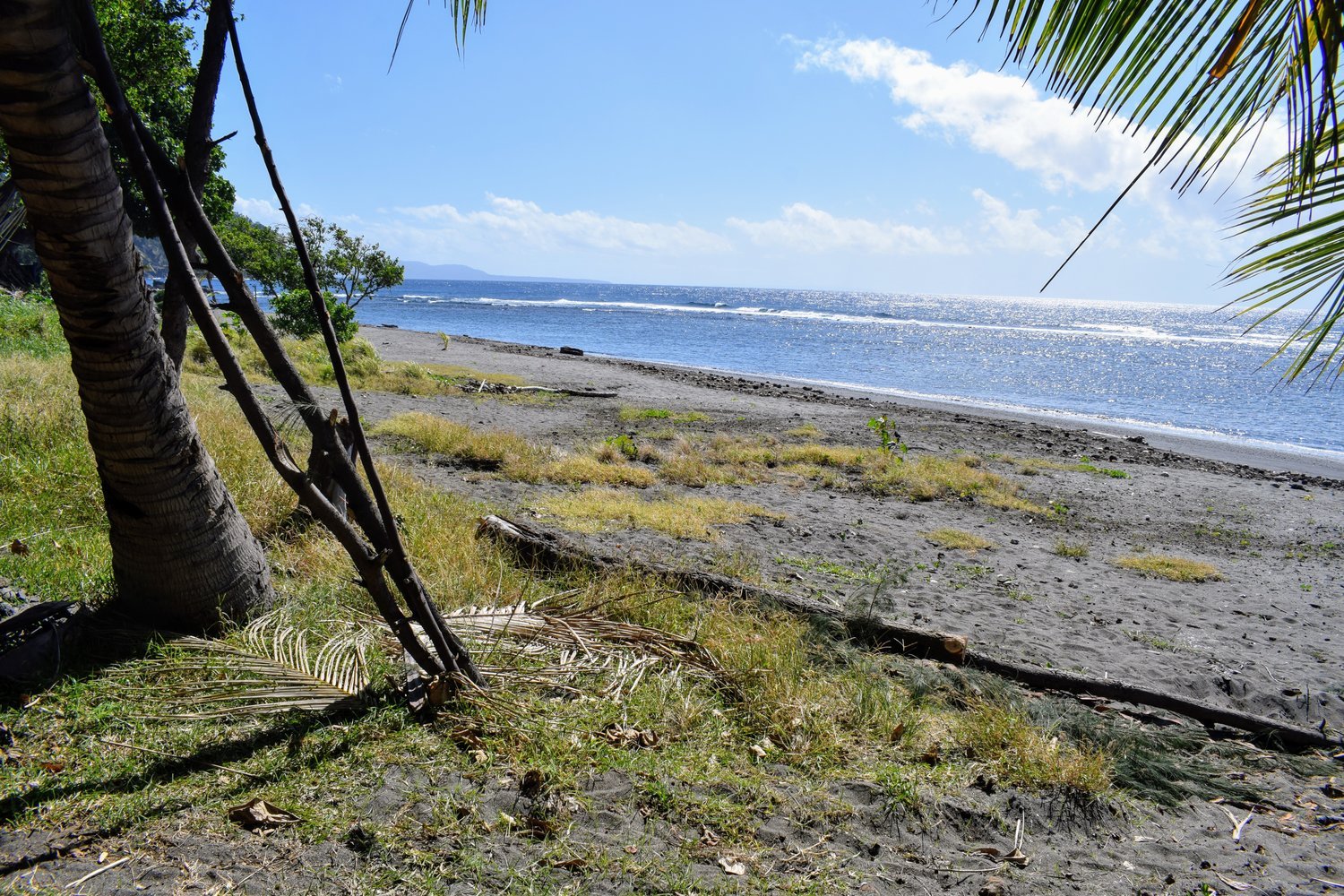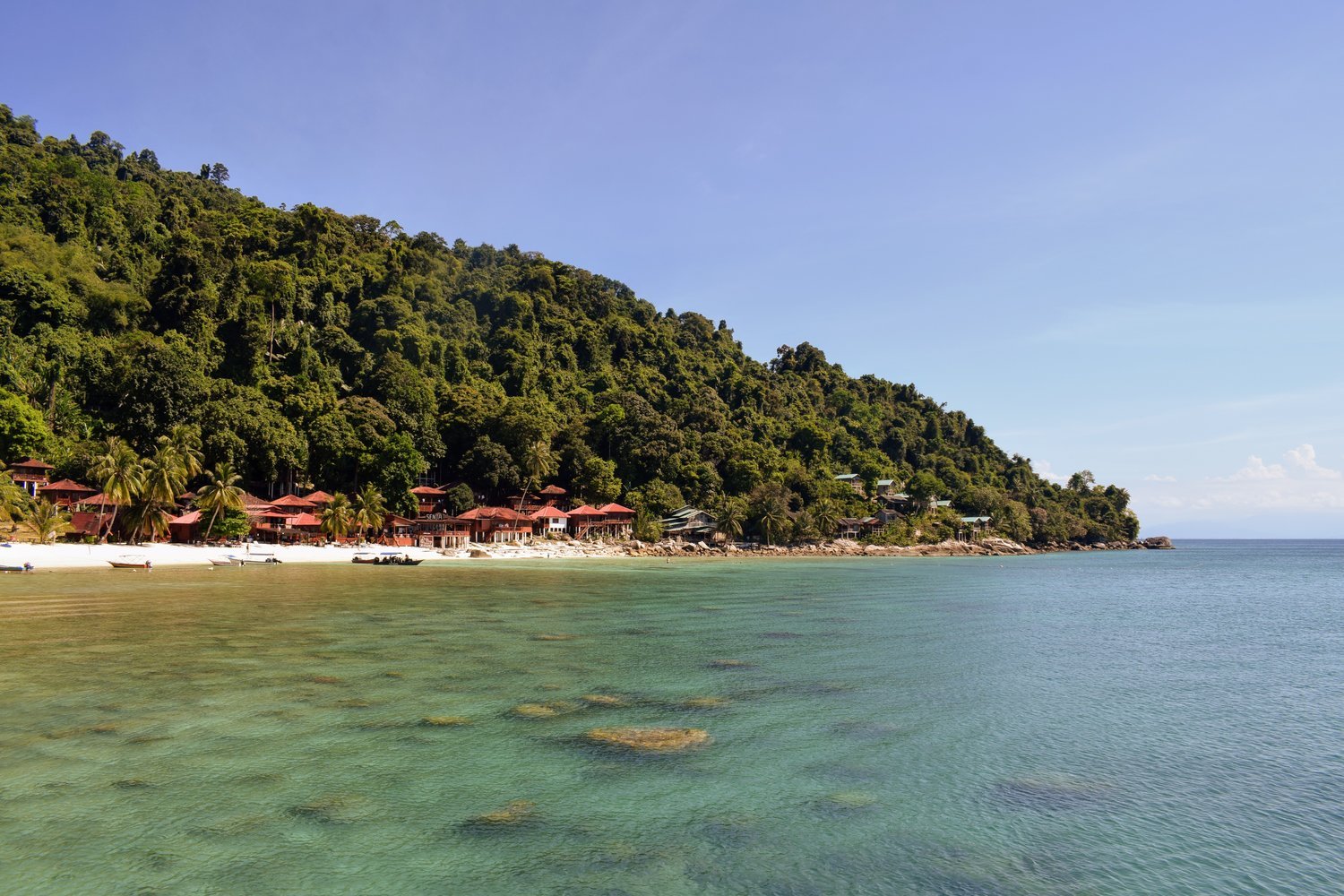Travel
CreativeCultureTribe the Rise of Solo Female Travel

The world is changing, and so are the ways we explore it. Enter the solo female travel movement—a bold declaration of independence, adventure, and self-discovery. CreativeCultureTribe the Rise of Solo Female Travel – Women everywhere are packing their bags and embarking on journeys that not only lead to breathtaking destinations but also foster personal growth and empowerment. With every passport stamp earned alone, there’s a story waiting to unfold.
Gone are the days when traveling solo was seen as unusual or daunting for women. Instead, it’s becoming a vibrant trend that’s reshaping how we view exploration. The rise of platforms like CreativeCultureTribe highlights this shift, celebrating women who dare to venture out into the unknown on their terms. As more women take charge of their travel experiences, they’re discovering freedom in solitude and strength in self-reliance.
Join us as we delve into this exciting movement, exploring its statistics and benefits while addressing common safety concerns along the way. Through inspiring stories from fearless female travelers and practical tips for planning your next adventure alone, we’ll celebrate why now is truly an incredible time to embrace solo female travel with open arms!
Statistics and Growth of Solo Female Travel
The solo female travel movement is surging. Recent statistics reveal that women now make up 56% of solo travelers worldwide. This shift highlights a growing sense of independence and adventure among women.
In the past decade, bookings for female-only tours have increased by nearly 50%. Destinations are adapting to this trend, offering tailored experiences that cater specifically to solo females.
Social media plays a pivotal role in this growth as well. Online platforms allow women to share their stories, inspire others, and connect with like-minded travelers across the globe.
This rise isn’t just about exploring new places; it’s also about empowerment. More women are choosing to step outside their comfort zones, embracing freedom and self-discovery through travel.
Travel agencies are taking notice, too. They’re curating packages designed exclusively for women seeking unique adventures while prioritizing safety and connection along the way.
Benefits of Solo Female Travel
Solo female travel offers unparalleled freedom. Women can choose their destinations, create flexible itineraries, and indulge in activities that spark joy without compromise.
It also fosters self-discovery. Traveling alone encourages personal growth and pushes individuals out of their comfort zones. Every new experience adds a layer to one’s identity.
Additionally, solo travel nurtures independence. Navigating new environments builds confidence and resilience. Overcoming challenges alone cultivates a sense of empowerment that can ripple into other life areas.
The opportunity for authentic connections is another significant benefit. Whether it’s sharing stories with locals or bonding with fellow travelers, solo journeys often lead to meaningful relationships that enrich the trip.
There’s an unmatched tranquility found in solitude while exploring breathtaking landscapes or enjoying quiet moments in bustling cities. This peace becomes a precious part of the adventure, allowing women to reflect and recharge amidst exploration.
Safety Concerns and How to Address Them
Safety is a vital consideration for any solo traveler, especially women. Understanding potential risks can empower you to make informed decisions.
Research your destination before traveling. Know the local customs and laws. Familiarize yourself with areas known for their safety and those that aren’t as secure.
Keep important documents and valuables close. Use a money belt or hidden pouch to hold your passport, cash, and cards safely.
Stay connected with someone back home. Share your itinerary and check in regularly. This simple act can add an extra layer of security.
Trust your instincts at all times. If something feels off, don’t hesitate to leave the situation or seek help from locals or fellow travelers.
Join online communities like CreativeCultureTribe, where women share tips on navigating new environments safely while encouraging each other in their adventures.
Inspiring Stories of Women Who Have Traveled Solo
CreativeCultureTribe the Rise of Solo Female Travel, often find themselves in transformative experiences that reshape their perspectives. Take Sarah, who trekked through the lush landscapes of New Zealand. Alone but far from lonely, she discovered a newfound sense of confidence while navigating unfamiliar trails.
Then there’s Maria, who set off on an adventure across Southeast Asia. She immersed herself in local cultures and made lasting friendships with fellow travelers along the way. Each city brought new lessons and unforgettable memories.
Another inspiring tale is that of Aisha, who traveled to Morocco’s vibrant markets solo. She embraced every moment—from bargaining for spices to sipping mint tea with locals—showing us how empowering it can be to step outside your comfort zone.
These stories remind us that solo travel isn’t just about seeing new places; it’s about personal growth and self-discovery as well—a true celebration of resilience and independence among women everywhere.
Tips for Planning a Solo Trip
Planning a solo trip can be thrilling and daunting. Start by choosing your destination carefully. Research places that resonate with you and fit your comfort level.
Create a flexible itinerary. Outline major attractions while leaving room for spontaneity. This way, you can explore unexpected gems along the way.
Budget wisely. Factor in accommodation, meals, activities, and transportation costs to avoid surprises later on.
Don’t forget about packing essentials! Choose versatile clothing items and remember to include safety gear like a whistle or personal alarm.
Connect with other travelers through social media or local meetups before your journey begins. Building connections can enhance your experience immensely.
Keep important documents organized—save digital copies of passports and itineraries on cloud storage for easy access during emergencies!
Joining the CreativeCultureTribe Community for Support and Resources
Joining the CreativeCultureTribe community opens up a world of support and resources tailored to solo female travelers. Here, like-minded adventurers come together to share experiences, tips, and inspiration.
Network with women who have walked similar paths. Engage in discussions that empower you to step out of your comfort zone. The camaraderie found within this vibrant community is both uplifting and motivating.
Access exclusive content designed for every stage of your journey. From packing hacks to destination guides, you’ll find everything you need at your fingertips.
Participate in workshops that focus on travel safety or cultural immersion. This collaborative learning environment helps build confidence as you prepare for new adventures.
By joining CreativeCultureTribe, you’re not just becoming part of a group; you’re gaining lifelong friends who inspire each other to explore the world boldly and fearlessly.
Conclusion: Embracing the Bold Rise of Solo Female Travel
CreativeCultureTribe the Rise of Solo Female Travel marks a transformative shift in how women engage with the world. It’s not just about adventure; it’s about empowerment and self-discovery. As more women take to the skies, roads, and trails alone, they’re crafting their narratives filled with courage and curiosity.
Joining communities like CreativeCultureTribe can amplify this experience. The support from fellow travelers fosters connections that enrich journeys beyond measure. Each story shared within this tribe adds another layer to the collective experience of female travelers everywhere.
Solo travel isn’t merely an option anymore—it’s becoming a celebrated choice for many women seeking freedom and exploration on their terms. By embracing these adventures, you become part of a larger movement celebrating independence and resilience.
So pack your bags! Whether you’re dreaming of serene beaches or bustling city streets, each trip is an opportunity waiting to unfold. Step into the world solo, share your journey, and inspire others along the way as we continue to witness this bold rise together.
Travel
5 Things to Know Before Traveling to Italy for the First Time

Italy is one of the most iconic travel destinations in the world. From the romantic canals of Venice to the ancient ruins of Rome and the breathtaking coastline of Amalfi, it’s a country that captures the imagination of every traveler.
But while Italy is incredibly welcoming, it also has its own cultural rhythms, practical travel rules, and everyday details that can surprise first-time visitors.
To make your trip smoother, more enjoyable, and stress-free, here are five essential things to know before traveling to Italy.
Understand How Payments Work in Italy
One of the most common surprises for tourists in Italy is that payment culture can be different than what travelers expect, especially if you’re coming from the United States.
While credit cards are widely accepted in major cities and tourist areas, Italy is still a country where cash plays an important role. Many small cafés, family-run restaurants, local markets, and rural shops may prefer cash or only accept certain card types.
Visa and Mastercard tend to be the most universally accepted, while American Express is less common in smaller businesses due to higher processing fees.
If you plan to rely on a specific card while traveling, it’s smart to research ahead of time. For more information about this, consider reading this article about travel in Italy AmEx.
It can help you avoid awkward situations when paying for hotels, restaurants, or transportation.
Learn Basic Italian Etiquette and Cultural Norms
Italians are warm, expressive, and social, and understanding a few cultural norms can make your experience much better.
Some key etiquette tips include:
- Always greet shopkeepers when entering a store
- Say “buongiorno” during the day and “buonasera” in the evening
- Dress neatly when visiting churches or nicer restaurants
- Don’t expect fast service at cafés or restaurants
- Enjoy meals slowly, as dining is meant to be an experience
Also, keep in mind that Italians often follow traditions around food:
- Cappuccino is typically a morning drink
- Ordering a latte will get you plain milk
- Dinner is usually later than in the US, often after 8 PM
A little cultural awareness goes a long way in Italy and helps you blend in as a respectful traveler.
Know How Transportation Really Works
Italy has an excellent transportation network, but understanding how to use it efficiently can save you time and money.
Trains are the best way to travel between cities such as:
- Rome
- Florence
- Venice
- Milan
- Naples
High-speed trains are comfortable, fast, and often cheaper than flying when booked early.
Inside cities, walking is often the best option, especially in historic centers where streets are narrow and traffic is limited.
Some helpful transportation tips:
- Validate paper train tickets before boarding
- Book high-speed tickets in advance for better prices
- Avoid driving in city centers due to restricted traffic zones
- Use metro and buses in large cities like Rome and Milan
If you’re visiting smaller towns, renting a car may be useful, but be prepared for narrow roads and limited parking.
Be Prepared for Tourist Traps and Local Scams
Italy is generally safe, but like any popular tourist destination, there are areas where travelers should stay alert.
The most common issues tourists encounter include:
- Pickpocketing in crowded places
- Overpriced restaurants near major landmarks
- Fake petitions or bracelet scams
- Unofficial taxi drivers charging extra
To avoid problems:
- Keep valuables secure in busy areas
- Choose restaurants a few streets away from tourist hotspots
- Use official taxis or ride apps where available
- Don’t engage with aggressive street vendors
Rome, Venice, Florence, and Naples are wonderful cities, but they attract millions of tourists, which means scammers often target distracted visitors.
Being aware is not about being fearful, it’s simply about being prepared.
Plan for Italy’s Travel Seasons and Timing
Italy changes dramatically depending on the season, and knowing when you travel can impact your budget and experience.
Spring and early summer
- Beautiful weather
- High crowds in major cities
- Higher accommodation prices
Peak summer (July and August)
- Extremely busy tourist season
- Hot temperatures, especially in cities
- Many locals take holidays, and some businesses close
Fall
- Great weather and fewer crowds
- Ideal for food and wine regions
- More affordable travel options
Winter
- Best prices for flights and hotels
- Great for Christmas markets and skiing
- Some coastal towns become quiet or partially closed
If you want a balanced experience, May, September, and October are often considered the best months to visit.
Planning your itinerary around seasonal timing can make Italy feel far more enjoyable and less overwhelming.
Bonus Tip Enjoy Italy’s Slower Pace of Life
One of the biggest mistakes travelers make in Italy is trying to do too much too quickly.
Italy isn’t just about checking landmarks off a list. It’s about atmosphere, food, culture, and daily life.
Instead of rushing through five cities in seven days, consider slowing down:
- Spend extra time in one region
- Enjoy long meals without looking at the clock
- Wander through neighborhoods without a strict plan
- Take breaks at cafés and people-watch
Italians value “la dolce vita” — the sweet life — and travelers who embrace this mindset often have the most memorable experiences.
Final Thoughts Before Your Italy Trip
Traveling to Italy is an unforgettable experience, filled with history, beauty, and world-class cuisine. But a little preparation goes a long way.
To recap, the five most important things to know before traveling to Italy are:
- Understand how payments and credit cards work
- Learn basic etiquette and cultural expectations
- Use trains and public transport wisely
- Stay aware of tourist traps and scams
- Plan your trip based on the best seasons
With these tips in mind, you’ll be ready to enjoy Italy confidently, whether you’re exploring Rome’s ancient streets, sipping wine in Tuscany, or relaxing along the Mediterranean coast.
And don’t forget that practical details like payment methods can make your trip smoother, especially if you plan to use American Express during your travels.
Travel
Why Simpler Gear Choices Make Outdoor Adventures Less Stressful

I used to think being “prepared” meant bringing everything.
Extra straps. Backup tools. Multiple bags for the same activity. A whole mental checklist that started days before the trip and somehow followed me onto the road. And honestly? It was exhausting.
Somewhere along the way, outdoor adventures started to feel more like logistics exercises than escapes. I wasn’t relaxing — I was managing gear. Constantly double-checking whether things were secure, packed right, or going to rattle loose after the first pothole.
If you’ve ever stood in your driveway wondering why a weekend outside suddenly feels harder than a normal workday, you’re not alone.
The truth is that more gear doesn’t equal less stress. In fact, it often does the opposite.
The Hidden Stress of “Over-Optimizing” the Outdoors
There’s a weird pressure in outdoor culture that says more is better. More equipment. More features. More accessories. More backups for your backups.
It sounds smart in theory. But in practice? It creates friction.
Every extra piece of gear adds:
- Another decision to make
- Another thing to secure, store, or worry about
- Another potential failure point
I’ve watched people spend half an hour loading bikes, adjusting straps, re-tightening mounts, and second-guessing everything — before they’ve even left the driveway. By the time they hit the trailhead, they’re already mentally drained.
That’s not what getting outside is supposed to feel like.
According to a study summarized by the American Psychological Association, decision fatigue is real — the more small choices we make, the more stressed and mentally taxed we become over time. And outdoor prep is full of small choices.
When Gear Starts Dictating the Experience
I’ve seen this play out over and over.
Someone buys a system that technically works… but only if everything is loaded in the perfect order, tightened just right, and checked again mid-drive. Suddenly the whole trip revolves around the gear instead of the adventure.
You stop spontaneously grabbing lunch on the way because you don’t want to leave the car unattended. You skip side trips because unloading and reloading feels like too much work. You rush home instead of lingering because you’re already thinking about taking everything apart again.
At that point, the gear is running the show.
And that’s when people start quietly looking for simpler solutions — not because they want less capability, but because they want fewer mental hoops.
The Moment I Realized “Simple” Is a Feature
I remember one trip where everything clicked.
We packed faster. We loaded bikes in minutes instead of wrestling with straps. No awkward lifting. No re-adjustments. No constant glances in the rearview mirror wondering if something was shifting back there.
It was the first time in a long while that the prep felt calm.
A friend had recently switched to a vertical hitch setup from VelociRAX, and watching how effortless the process was changed my perspective completely. The bikes went on. They stayed put. And that was it. No drama. No tinkering.
That one change eliminated about ten micro-stressors I didn’t even realize I was carrying.
And it got me thinking: why do we tolerate complicated gear when the goal is freedom?
Simplicity Isn’t About Doing Less — It’s About Removing Friction
There’s a difference between being underprepared and being overcomplicated.
Good gear should:
- Reduce steps, not add them
- Fade into the background once it’s in use
- Let you focus on the experience, not the setup
REI has a great breakdown on how thoughtful gear choices improve outdoor enjoyment, especially when it comes to ease of use and reliability. They emphasize that gear should support the activity, not become the activity itself.
That’s the shift more experienced outdoor folks tend to make over time. Beginners often chase features. Veterans chase simplicity.
Why Fewer Decisions Lead to Better Adventures
Let’s be real — most of us are already decision-fatigued before the weekend even starts.
Work. Family logistics. Schedules. Notifications. Deadlines.
When your outdoor setup requires another layer of thinking, it defeats the point. The best trips I’ve taken recently all had one thing in common: minimal decision-making once the car was packed.
The National Park Service encourages visitors to streamline prep so they can stay present and adaptable during trips, especially when plans change due to weather or conditions.
Less complexity gives you flexibility. And flexibility is what turns a good plan into a great memory.
The Confidence Factor (Underrated but Huge)
There’s also something to be said for confidence.
When you trust your setup, you relax. You stop checking mirrors. You stop pulling over “just to be safe.” You stop worrying about whether something’s rubbing, shifting, or slowly coming loose.
That confidence carries into the rest of the trip. You drive easier. You arrive in a better mood. You’re more patient with delays and detours.
It’s subtle, but it matters.
Why Experienced Adventurers Downsize Their Systems
Talk to people who’ve been doing this for years — mountain bikers, skiers, overlanders, climbers — and you’ll notice a pattern.
Their setups get cleaner over time, not more complex.
They’ve already learned:
- What they actually use
- What never leaves the bag
- What causes the most frustration
And they slowly eliminate the rest.
Outside Magazine has written about this exact progression — how seasoned outdoor enthusiasts gravitate toward fewer, better-designed pieces of gear instead of sprawling setups.
It’s not about minimalism for the sake of it. It’s about removing obstacles between you and the experience.
Stress Shows Up in Small Ways
Stress isn’t always loud.
Sometimes it looks like:
- Snapping at your travel partner over nothing
- Feeling rushed even when you’re not on a schedule
- That low-grade irritation you can’t quite name
And a surprising amount of that comes from preventable friction.
When loading is easy, storage is intuitive, and transport feels secure, your nervous system settles down. You don’t feel like you’re managing a problem — you feel like you’re going somewhere.
The Goal Was Never the Gear
This is the part people forget.
No one gets into outdoor adventures because they love equipment. They get into it because they love how it feels to be outside. The quiet. The movement. The reset.
Gear is just a means to an end.
When it becomes the source of stress, it’s worth rethinking the setup — even if it technically works.
A Better Question to Ask Before Buying Anything
Instead of asking:
- “How many features does this have?”
Try asking:
- “How much thinking will this require every time I use it?”
That one question filters out a lot of unnecessary complexity.
The best gear choices I’ve made lately are the ones I barely think about anymore. They just do their job and get out of the way.
Final Thought: Less Gear, More Headspace
Outdoor adventures don’t need to be optimized to death.
They need room to breathe.
When you simplify your gear choices, you’re not cutting corners — you’re creating space. Space for spontaneity. Space for enjoyment. Space to actually unplug.
And once you experience a trip where everything just flows, it’s hard to go back.
Honestly, that’s when the outdoors start feeling like an escape again — not another system to manage.
Travel
How Real-Time Flight Tracking Ensures a Smooth Arrival at Gatwick
Landing at a bustling international hub like Gatwick Airport (LGW) brings a mix of anticipation and anxiety. Whether you’re heading home after a long trip, beginning a holiday, or touching down for meetings, every minute counts. Flight delays, last-minute gate switches, and baggage complications can derail even the best-laid plans. Fortunately, real-time flight tracking technology has revolutionized how both travelers and ground transport providers prepare for arrivals. When paired with dependable transfer services like Sky Bridge Cars, this technology creates a seamless, worry-free arrival into London through Gatwick.
What Is Real-Time Flight Tracking?
Real-time flight tracking encompasses technologies and platforms that monitor aircraft from take-off through landing, providing live updates on position, estimated touchdown time, delays, and gate assignments. These systems pull information from multiple sources:
- Direct airline data feeds
- Air Traffic Control (ATC) networks
- Radar and satellite monitoring system
- ADS-B transponder signals transmitted by aircraft
This constantly updated information flows to mobile applications, websites, and airline platforms, enabling passengers and service providers to follow flights with exceptional accuracy.
The Value of Real-Time Tracking for Gatwick Arrivals
As one of Britain’s busiest airports, Gatwick processes millions of travelers annually. Operating two terminals with intricate arrival and departure schedules means even minor disruptions can create widespread effects. Real-time tracking enhances the arrival process in several key ways:
Precision in Arrival Estimates
Scheduled arrival times represent ideal scenarios, but reality frequently differs. Meteorological conditions, airspace congestion, and operational challenges create delays or surprisingly early touchdowns. Real-time tracking provides Sky Bridge Cars and passengers with current arrival projections, which:
- Cuts down on unnecessary waiting
- Facilitates better planning for connecting transport
- Alleviates passenger anxiety
When air traffic control restrictions delay a flight, tracking systems immediately recalculate arrival times, keeping all parties informed.
Reduced Travel Anxiety
Air travel particularly international or multi-leg journeys carries inherent stress. Uncertainty about landing times and subsequent arrangements intensifies that pressure. Real-time flight tracking eliminates guesswork by delivering constant updates through:
- Smartphone applications
- Direct airline communications
- Terminal information displays
- Text message or email notifications
Travelers gain precise knowledge of their touchdown time, enabling confident decisions about baggage retrieval, immigration queues, or ground transfers.
Enhanced Ground Transport Coordination
The most significant advantage of real-time tracking may be its impact on ground transportation logistics. Transfer specialists like Sky Bridge Cars, who focus on airport services throughout London and Gatwick Airport, utilize precise flight information to:
- Modify pickup schedules according to actual flight status
- Eliminate costly idle time
- Position drivers for immediate passenger collection
- Create fluid transitions from aircraft to automobile
Picture stepping through the terminal exit to find your private driver waiting at the curb, rather than that driver circling for an hour due to unexpected delays. This synchronization between live flight data and transfer services makes that scenario routine.
Sky Bridge Cars’ Integration of Real-Time Flight Tracking
Sky Bridge Cars has built its reputation on punctual pickups and drop-offs at Gatwick Airport. Their strategic use of real-time flight tracking elevates the passenger experience through several methods:
- Synchronized Arrival Coordination
Instead of asking passengers to commit to rigid pickup times that might prove inaccurate due to delays, Sky Bridge Cars actively monitors real-time flight progress. Drivers calibrate their Gatwick arrival based on actual landing times, guaranteeing:
- Zero missed connections
- Minimal terminal waiting periods
- Effortless progression from arrival gate to vehicle
This approach proves particularly valuable for international flights, where arrival times frequently fluctuate.
- Strategic Route Optimization
Real-time tracking reveals more than just arrival times it enables intelligent journey planning. Understanding the precise arrival window allows Sky Bridge Cars to:
- Select optimal routes for passenger collection
- Navigate around traffic bottlenecks
- Proactively adjust for local incidents or road delays
This responsive routing maximizes efficiency while maintaining passenger comfort.
- Proactive Client Updates
Access to accurate, current flight details enables Sky Bridge Cars to communicate decisively and promptly with customers. When delays occur, they can:
- Notify passengers without delay
- Reorganize driver assignments
- Set realistic arrival expectations
This transparency reduces anxiety and strengthens the relationship between service and client.
Passenger Tools and Strategies for Real-Time Flight Tracking
Most airlines and independent platforms now provide straightforward flight monitoring access. Widely used resources include:
- Carrier-specific apps (British Airways, easyJet, etc.)
- Dedicated tracking platforms and apps (FlightRadar24, FlightAware)
- SMS or email notification services
Practical recommendations for passengers:
📱 Activate push notifications on your tracking app to receive immediate updates about delays and gate modifications.
🎟 Review your flight status a full day before departure to catch early schedule changes and adjust plans accordingly.
✈️ Share flight details with your airport transfer provider so they stay informed about real-time developments.
The Modern Gatwick Arrival Experience with Sky Bridge Cars
Traditional Gatwick arrivals meant hovering by baggage carousels, studying arrivals boards, and guessing when to contact your driver. Today’s process flows far more smoothly:
- You monitor your flight from your device. Notifications deliver updates on delays, early arrivals, or gate changes as they happen.
- Your Sky Bridge Cars driver tracks the identical flight data. They time their terminal arrival with precision.
- You complete your landing and proceed directly to your reserved vehicle. No confusion, no stress simply a calm handoff from airport to destination.
- Your onward journey proceeds efficiently. Whether you’re bound for central London, a nearby hotel, or another UK location, the trip continues without interruption.
This streamlined experience gives passengers greater confidence, superior time management, and significantly reduced stress levels.
Why Modern Travel Demands Real-Time Tracking
The travel landscape has transformed dramatically over the past ten years. Real-time information has shifted from premium feature to fundamental expectation. Consider these factors:
- Air travel operates dynamically. Weather patterns, airspace density, and airport operations constantly evolve.
- Passenger standards have risen. Modern travelers expect transparency and journey control.
- Time carries premium value. Delays translate to financial loss, especially for business travelers or compressed schedules.
Real-time tracking addresses these requirements and empowers all stakeholders to make informed choices.
Conclusion: Smooth Arrivals Begin Before Landing
Real-time flight tracking stands among the most transformative innovations in contemporary travel logistics. It eliminates uncertainty, strengthens communication, and coordinates every stage from descent through ground transportation. For passengers arriving at Gatwick Airport, this technology combined with attentive service from providers like Sky Bridge Cars ensures the journey extends beyond the runway it flows seamlessly into the next travel phase.
With flight information updating continuously and ground services calibrated to live data, travelers can finally abandon the waiting game, stepping off the aircraft with complete clarity about what follows next.





